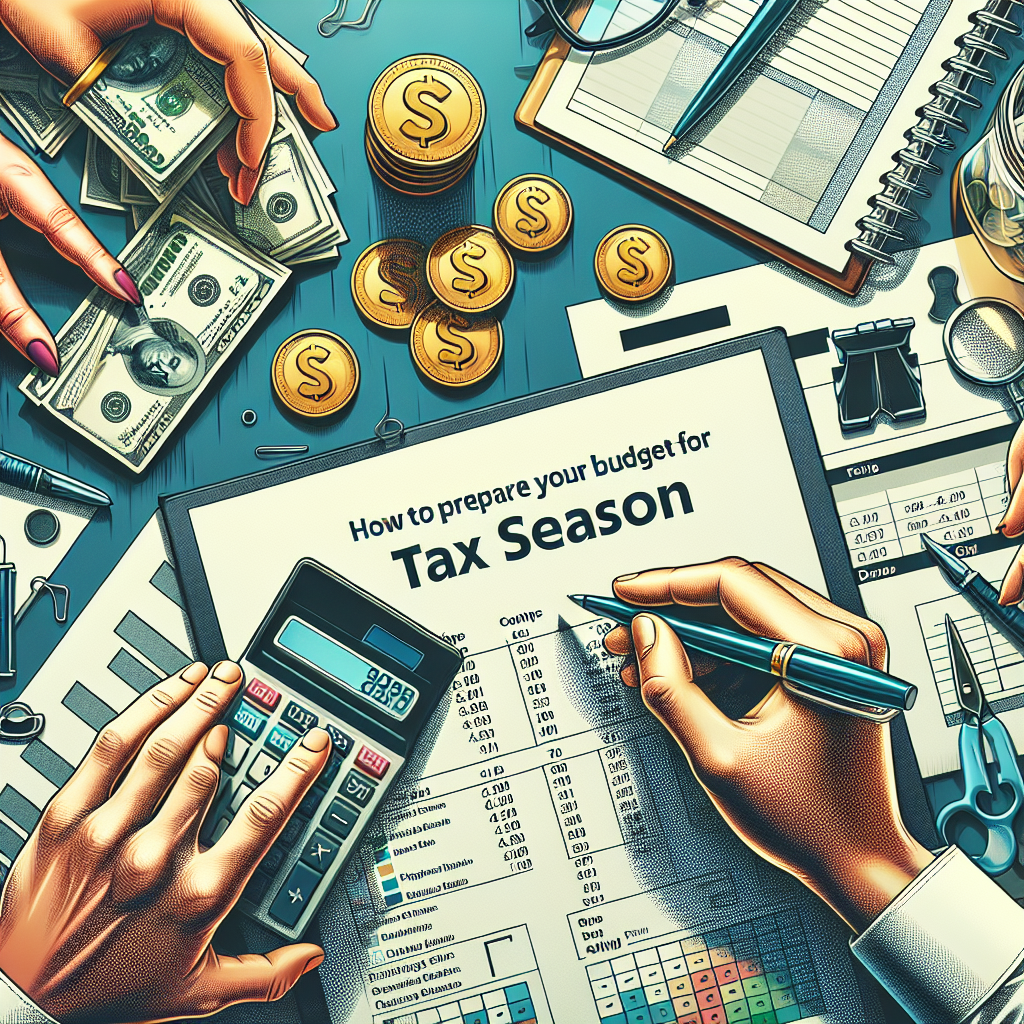Tax season can be overwhelming, but with the right preparation, you can minimize stress and maximize your savings. In this article, we’ll guide you through practical steps to prepare your budget for tax season effectively. From organizing your finances to understanding tax deductions, we’ll cover everything you need to know!
Understand Your Tax Obligations
The first step in preparing your budget for tax season is understanding your tax obligations. Depending on your employment situation, marital status, and where you live, the tax laws may vary. Familiarize yourself with the key types of taxes you may be liable for, including:
- Income Tax: Based on your earnings from employment, investments, or other sources.
- Capital Gains Tax: Applicable when you sell an asset for more than you paid for it.
- Self-Employment Tax: If you earn income through freelance work, you’ll need to pay this additional tax.
Research Tax Rates and Deductions
Different income brackets fall under different tax rates. Make sure to stay informed about the current tax rates as this can help you estimate your tax return for the upcoming season. Additionally, understanding available tax deductions and credits can lead to significant savings:
- Standard Vs. Itemized Deductions: Know when to use each option. Often, individuals will find the standard deduction easier, while homeowners may benefit from itemizing.
- Tax Credits: Look for tax credits applicable to your situation, such as education credits or energy-efficient home credits.
Organize Your Financial Documents
Preparing a budget for tax season is significantly easier with the right documents at your fingertips. Here is a checklist of essential items to collect:
- W-2 Forms: If you are employed, your employer provides this form reporting your annual earnings.
- 1099 Forms: Freelancers and contractors will receive these forms that detail non-employee compensation.
- Receipts: Keep records of any work-related expenses or potential deductions.
- Bank Statements: Helpful for cross-referencing income and expenses.
Digitize Everything
Additionally, consider digitizing your documents. Utilizing financial software can help you stay organized and provide easy access during the tax preparation process. For optimal organization:
- Use cloud storage solutions like Google Drive or Dropbox.
- Invest in document scanning apps for easy digitization.
Set a Tax Budget
Creating a specific budget for tax season can alleviate financial pressure. Begin by estimating your tax liability to determine how much money you should set aside:
Calculate Estimated Taxes
Using the information gathered from previous years and your current income, calculate how much you might owe. If you expect a refund, consider how you want to allocate it. Here’s a simple framework:
- Total Income: Estimate total earnings for the year.
- Estimate Deductions: Add up standard or itemized deductions.
- Estimate Taxable Income: Subtract your deductions from your total income.
- Apply Tax Rates: Use applicable rates to estimate your liability.
Create a Tax Savings Account
Consider establishing a separate savings account for taxes. Automatically transfer money each month to ensure you have funds available when taxes are due.
Plan for Professional Help
Depending on the complexity of your finances, you might want to hire a professional tax preparer or accountant. Here are factors to consider:
- Complexity of Taxes: If you have multiple income sources or significant investments, hiring a pro can save you money in the long run.
- Fees: Weigh the cost of professional services against potential savings on deductions.
DIY Software Options
If you plan to do it yourself, choose trustworthy tax software that meets your needs. Many platforms offer easy-to-follow instructions and help you find deductions. Look for software that automatically updates with the latest tax laws.
Stay Informed About Changes
Tax laws can change from year to year. Subscribe to newsletters or follow reputable financial websites to stay updated on significant tax changes. Understanding new tax laws and incentives can help you leverage available options to lower your tax burden.
Review and Adjust Your Budget Regularly
Once tax season is over, review your budget regularly. Identify what methods worked best for you, what didn’t, and how your future budgeting can improve. Regular reviews will help you better prepare for the next tax season and may even lead to finding additional savings.
Use Financial Tracking Tools
Consider using budgeting apps or spreadsheets to help manage your finances. Look for tools that allow you to categorize expenses, track refunds, and plan for future tax obligations efficiently.
Conclusion
Preparing your budget for tax season doesn’t have to be a daunting task. By understanding your tax obligations, organizing necessary documents, setting a specific budget, and planning for professional help, you can simplify the process and potentially save money. Stay informed about tax law changes, and regularly review your financial plans to make future tax seasons smoother.
Embrace this season as an opportunity to evaluate your finances and to prepare for an even better financial year ahead!

